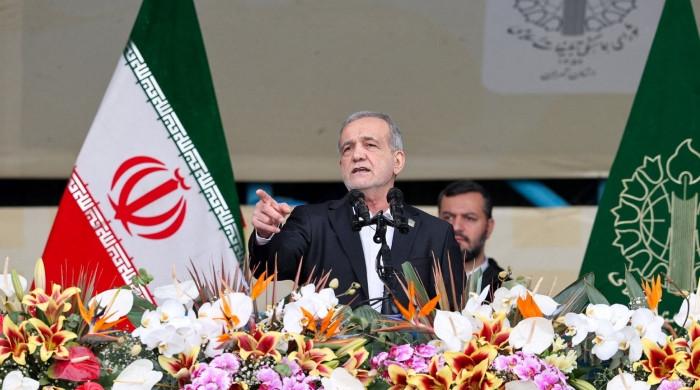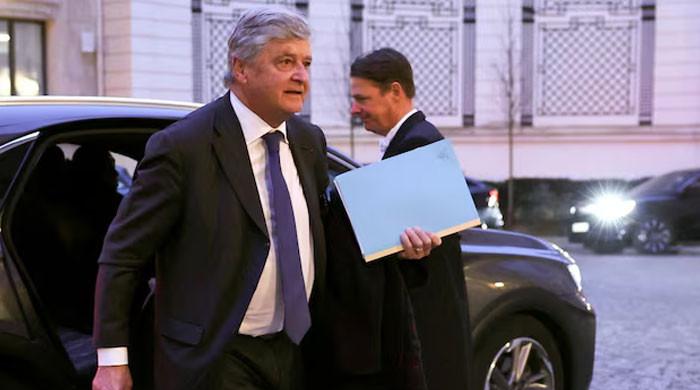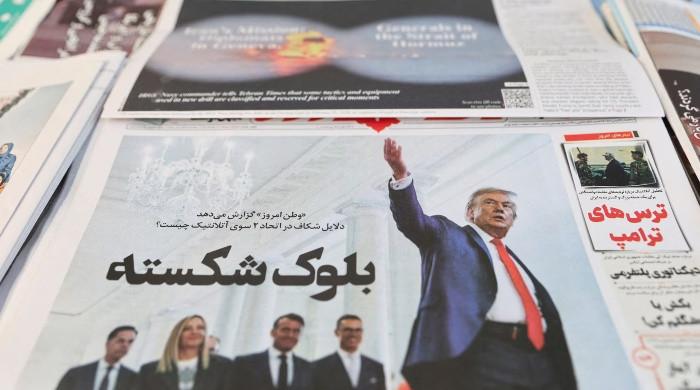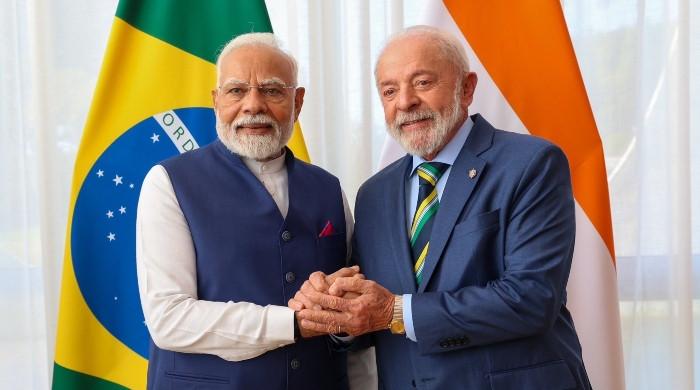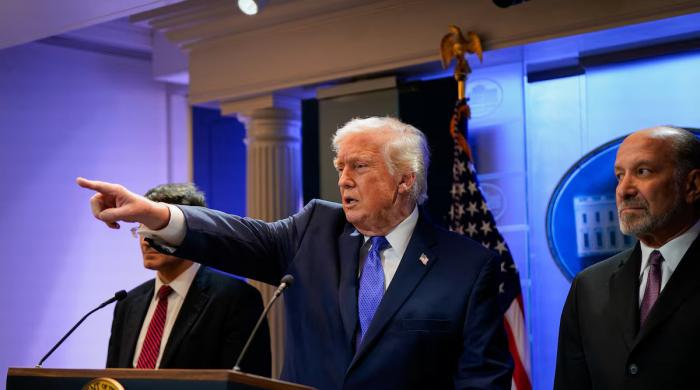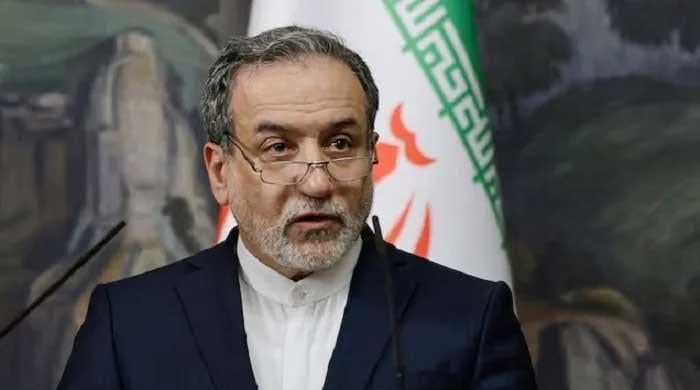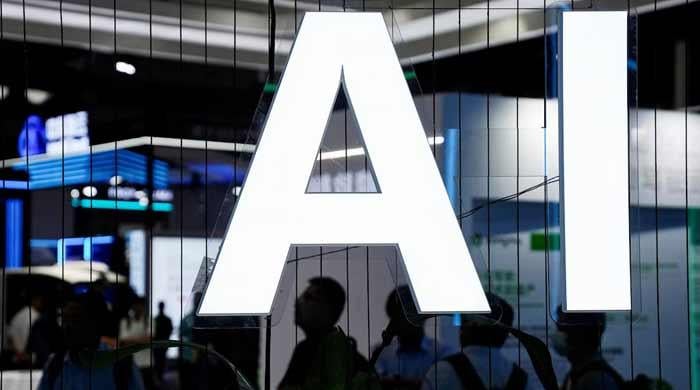Trump slaps 50% tariffs on Brazil after clash with Lula
Any unilateral hike in tariff to be addressed in light of Law of Economic Reciprocity, says Brazilian leader
July 10, 2025
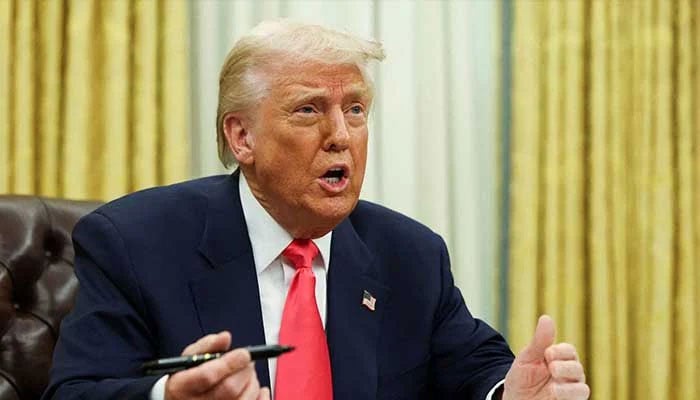
- Tariff decision comes after Trump's public spat with Brazil leader.
- Trump links tariffs to Brazil’s treatment of its former president.
- Brazil warns reciprocal action under its law.
WASHINGTON/BRASILIA: US President Donald Trump has announced a sharp 50% tariff on all goods coming from Brazil, just days after a public war of words with Brazilian President Luiz Inacio Lula da Silva.
The sudden move follows rising tensions between the two leaders, with Trump criticising Brazil’s handling of free speech and defending former President Jair Bolsonaro.
Lula, for his part, had called Trump an unwanted “emperor”, adding fuel to the fire.
In his letter, Trump linked the tariffs to Brazil’s treatment of former President Jair Bolsonaro, who is on trial over charges of plotting a coup to stop President Luiz Inacio Lula da Silva from taking office in 2023.
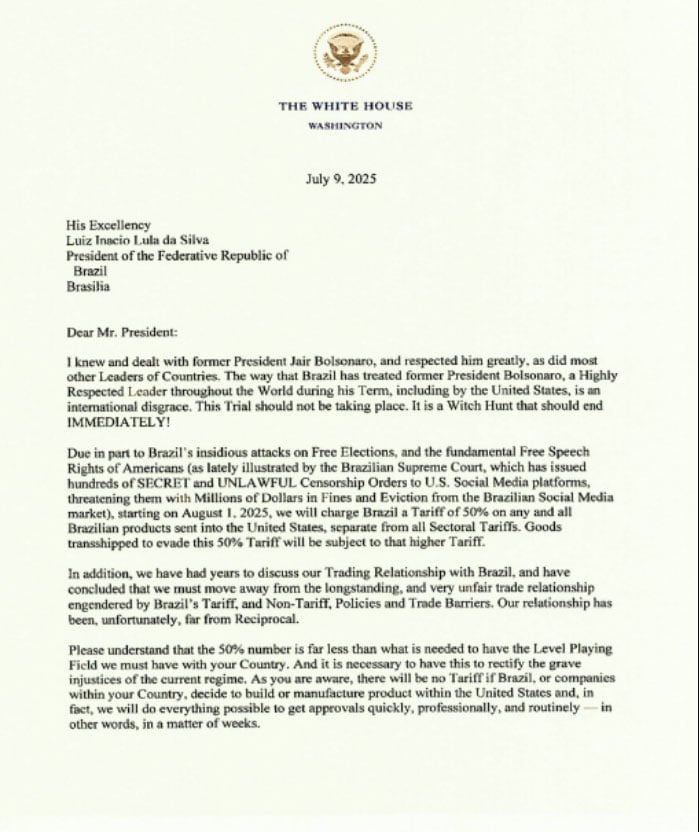
The levies were imposed due “in part to Brazil’s insidious attacks on Free Elections, and the fundamental Free Speech Rights of Americans,” the letter said.
Reacting to Trump's announcement, Brazil threatened to reciprocate the move. "Any unilateral tariff increases will be addressed in light of the Brazilian Law of Economic Reciprocity," Lula wrote on X.
Brazil’s real currency added to earlier losses to fall over 2% against the dollar after the announcement, and companies such as planemaker Embraer and oil major Petrobras also suffered setbacks in the US stock market, as markets reacted to levies that are expected to inflict great pain on Brazil.
The Brazilian government did not immediately comment on Trump’s tariffs, but Lula, his vice-president, his finance minister, and others were called to an emergency meeting in Brasília on Wednesday night to discuss the new levies.
The US is Brazil’s second-largest trading partner after China, and the tariffs are a major increase from the 10% that were announced in April. Trump’s letter said the 50% tariff will start on August 1 and will be separate from all sectoral tariffs.
On Monday, Lula attacked Trump after the US leader had threatened to impose an additional 10% tariff on the BRICS group of developing nations, which he called “anti-American,” during their summit in Rio de Janeiro.
“The world has changed. We don’t want an emperor,” Lula told reporters when asked about the possible BRICS tariff.
“We are sovereign nations,” Lula added. “If he thinks he can impose tariffs, other countries have the right to impose tariffs too.”
Bolsonaro ‘witch hunt’
Tensions between the United States and Brazil had already been intensifying on Wednesday after Brazil’s foreign ministry summoned the US Embassy’s chargé d’affaires over a statement defending Bolsonaro.
Around the same time, Trump, speaking to reporters at an event with West African leaders at the White House, said Brazil “has not been good to us, not good at all,” adding that the tariff rates would be based on “very, very substantial facts” and past history.
The US Embassy in Brasília confirmed on Wednesday that its chargé d’affaires had a meeting with officials from Brazil’s foreign ministry, though it declined to share details about the conversation.
Trump’s support for Bolsonaro echoed his support for other global right-wing leaders who have faced domestic legal cases, like French far-right leader Marine Le Pen and Israeli Prime Minister Benjamin Netanyahu. Trump has called cases against those leaders a “witch hunt,” a term he commonly used for cases that he faced himself in the US after the end of his first term in office.
Trump said in a social media post on Monday that Bolsonaro was the victim of such a “witch hunt.” The American Embassy in Brasília issued a statement on Wednesday to the local press echoing his remarks.
“The political persecution of Jair Bolsonaro, his family and his supporters is shameful and disrespectful of Brazil’s democratic traditions,” it said.
In his letter, Trump also directed US Trade Representative James Greer to initiate a probe into what he called unfair trade practices by Brazil, particularly on US companies’ digital trade. Trump also criticised decisions from Brazil’s Supreme Court that he said censored social media firms.
Brazil’s Supreme Court has long been criticised by Bolsonaro’s allies for ordering social media websites to take down content from leaders of their far-right movement. The court also imposed more responsibilities on those companies last month.
Impact on food exports
The tariffs on Brazil could have a significant impact on food prices in the United States. Around a third of the coffee consumed in the US, the world’s largest drinker of the beverage, comes from Brazil, which is the world’s largest coffee grower. Annual Brazilian coffee exports to the US are close to 8 million bags, according to industry groups.
More than half of the orange juice sold in the US comes from Brazil, which has an 80% share of the juice’s global trade. The South American agricultural powerhouse also sells sugar, beef and ethanol to the US, among other products.
“This measure impacts not only Brazil, but the whole US juice industry that employs thousands of people and has had Brazil as its main supplier for decades,” said Ibiapaba Netto, the executive director of Brazilian orange juice industry group CitrusBR.




